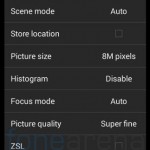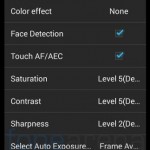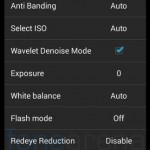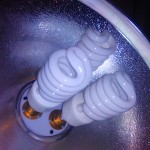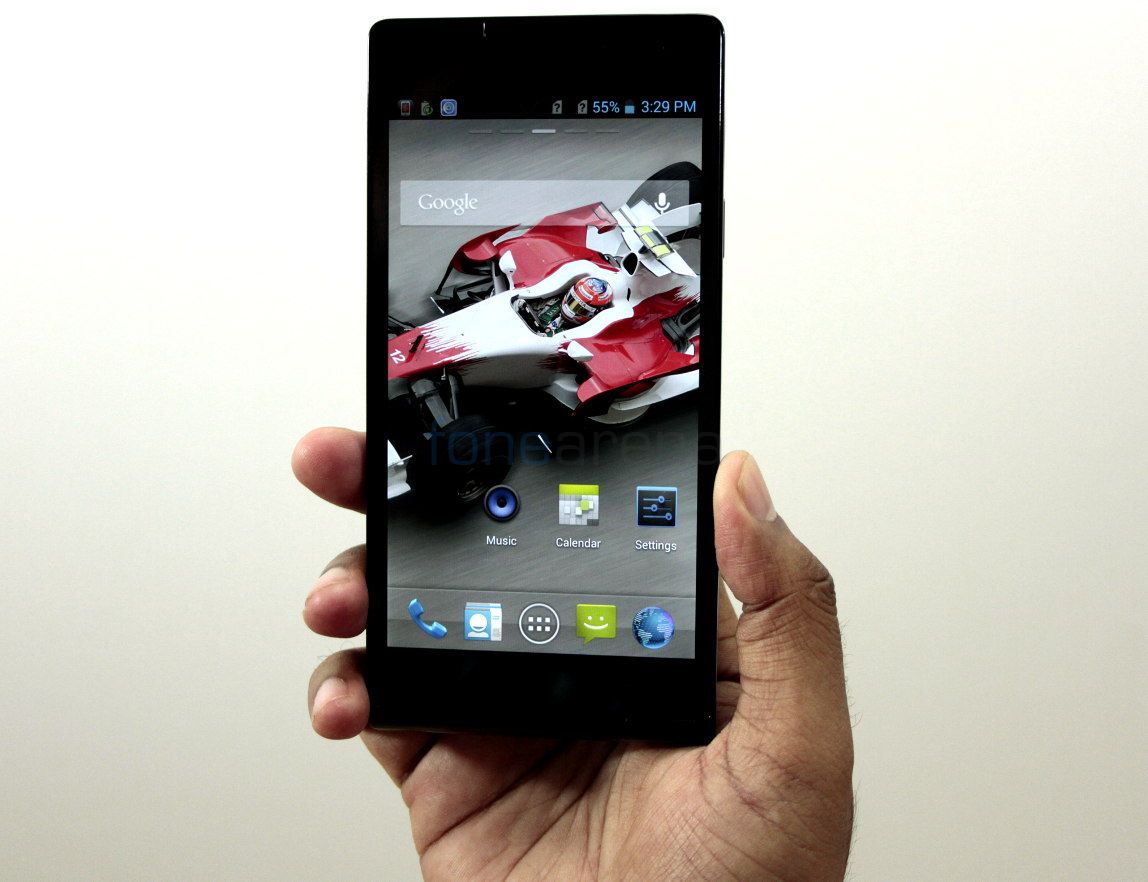
Xolo launched the Q1100, its first Snapdragon 400-powered smartphone last month at a price tag of Rs. 14,999. It comes under the Q CORE series and has a 5-inch HD display, similar to the Q1000 and the Q1000S. It goes head to head with the Samsung Galaxy Grand 2, that is also powered by a quad-core Snapdragon 400 processor and also lies in a similar price range of the Moto G. Is the Xolo Q1100 worth the price ? Let us find out in the complete review.
Unboxing
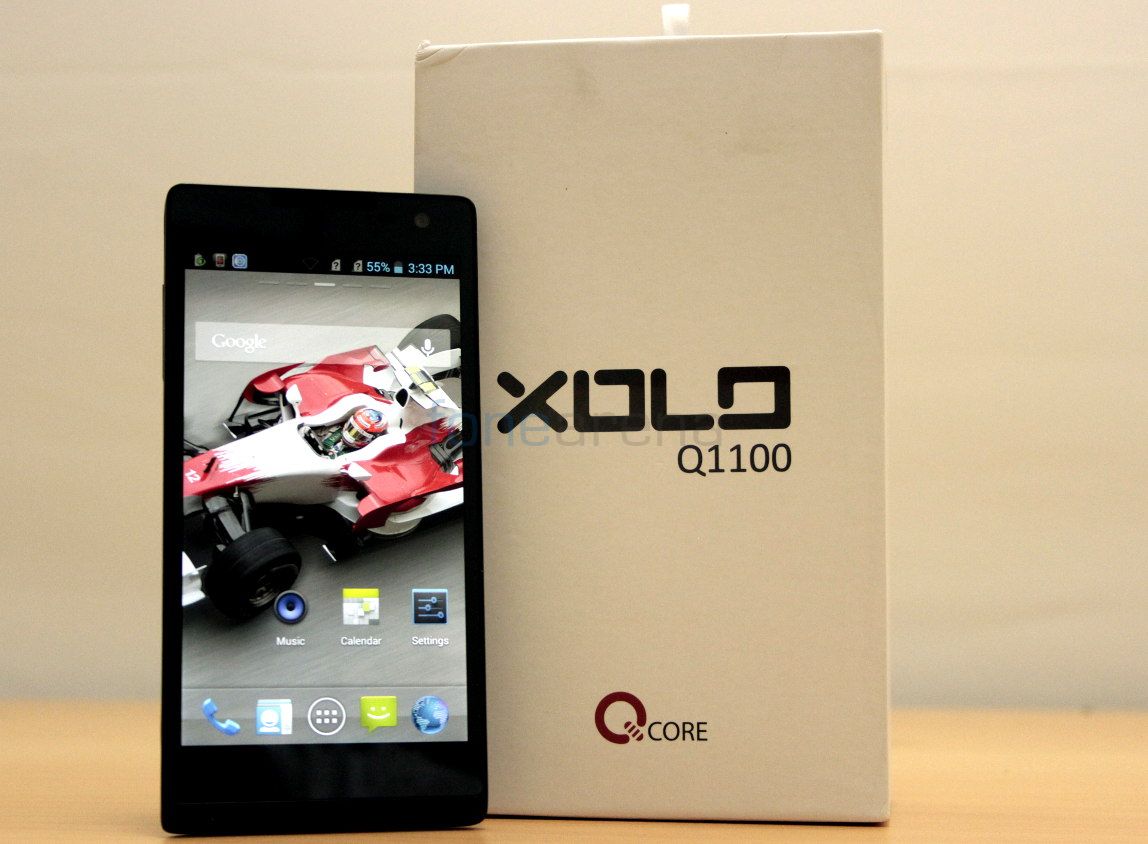
We unboxed the smartphone recently, check out the unboxing video.
httpv://www.youtube.com/watch?v=BvjIrA1vQZI
Box Contents
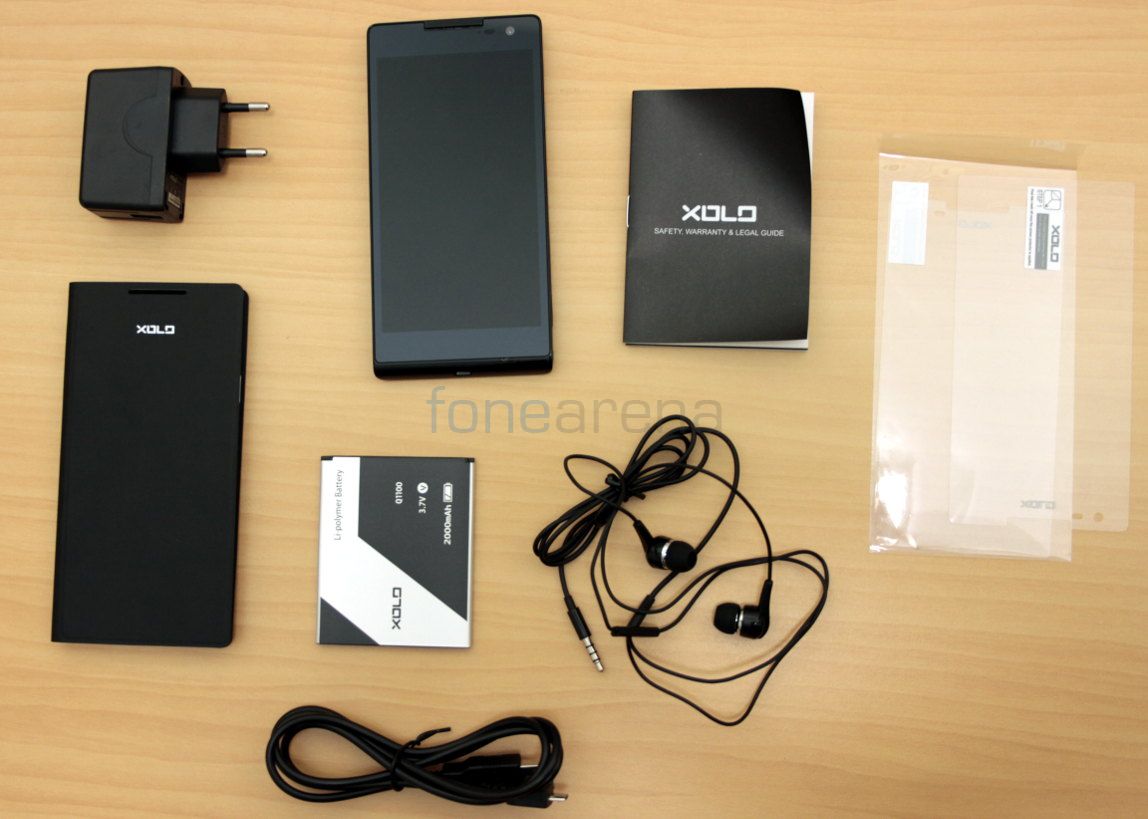
The box contents include,
- Xolo Q1100 smartphone
- 2000 mAh battery
- In-ear headset
- micro USB cable
- 2-pin wall charger (5V-1A)
- Scratch guard
- Flip cover with leather finish
- Warranty and user manual
Video Review
httpv://www.youtube.com/watch?v=2nInwlFBvno
Hardware and Design
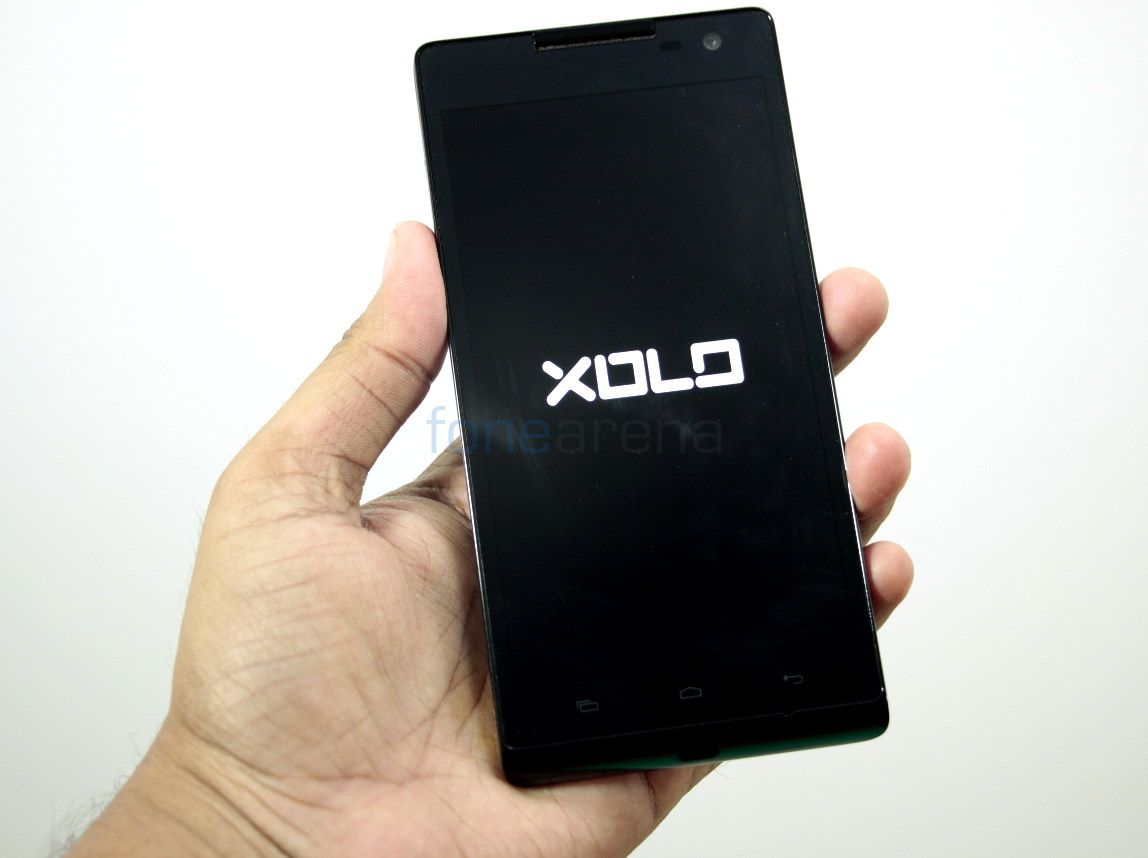
The phone has a 5-inch (1280 x 720 pixels) HD IPS display based on One-glass-solution at a pixel density of around 294 ppi. The display offers vibrant colors, thanks to the OGS technology and has decent viewing angles. Brightness seem low in the auto brightness mode, resulting in poor sunlight legibility. You have to adjust the brightness manually to view the display content properly under direct sunlight. The screen is also highly reflective, and is prone to fingerprints. Overall, the display is just average when you compare it with the display on the Q3000.

On the top there is a 2-megapixel camera, that can record videos up to 720p HD resolution. There is a LED notification light next to it, that glows in red, green and blue colors, depending on the type of function. It also has the usual set of proximity and ambient light sensors.
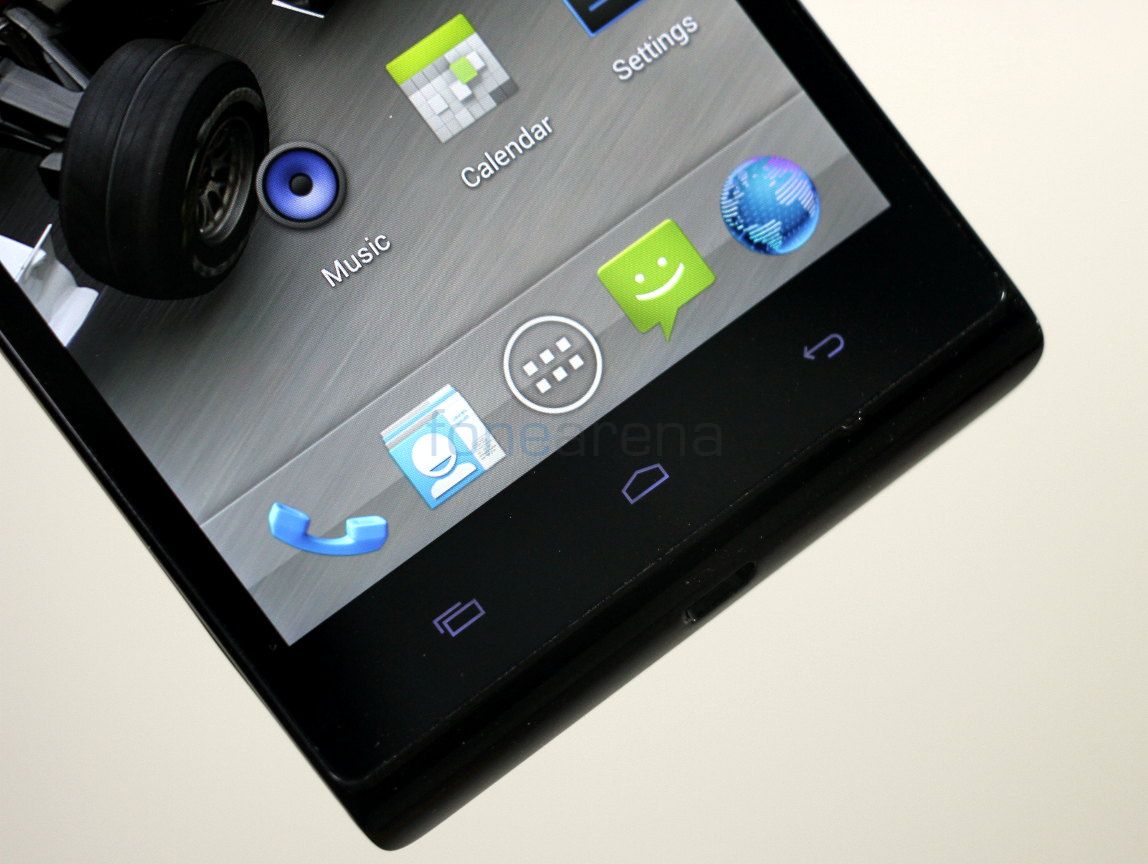
It has menu, home and back buttons, below the display. As usual, these are backlit, and offer haptic feedback when pressed. There is a small chin, below the bezel. There is a tiny microphone home, just above the chin.
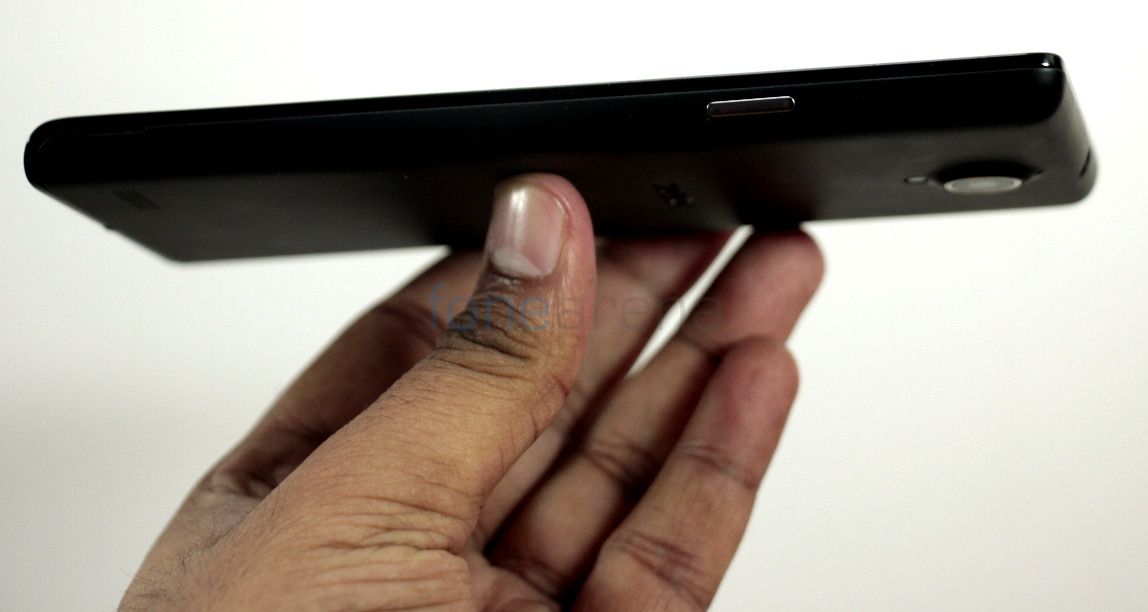
On the right side, there is a power button. Since the back panel covers even the sides of the phone, the power button and the volume rockers are attached to it. It is easily accessible when you are holding the phone.
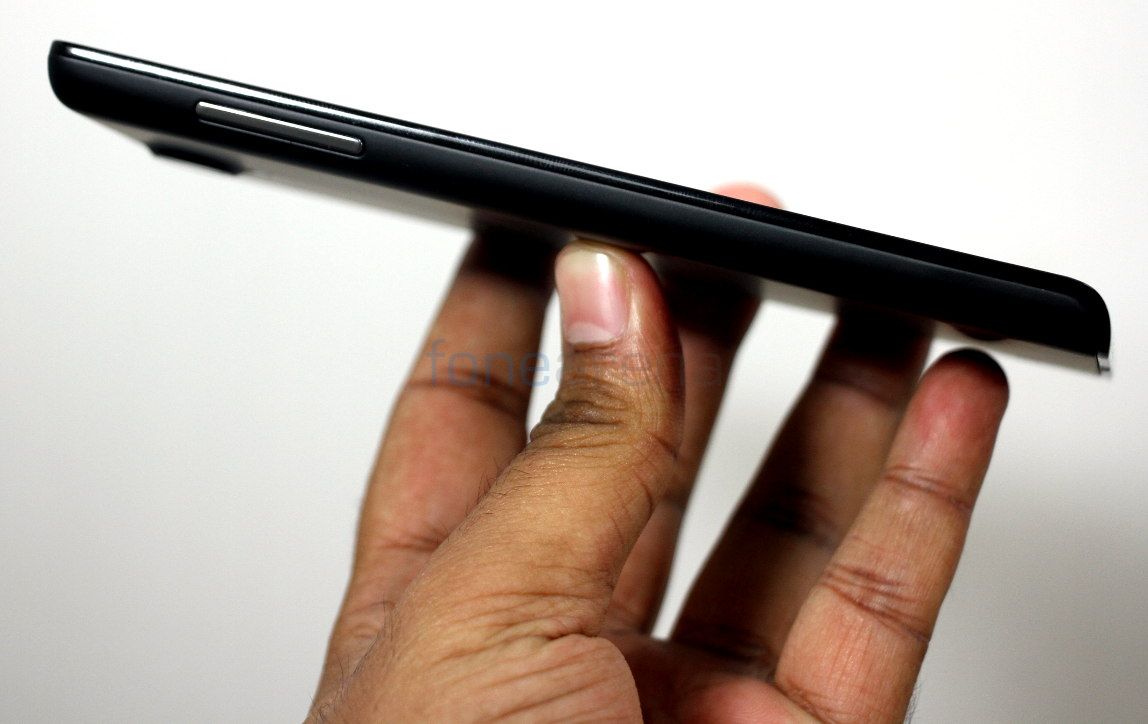
The volume rockers is present on the left side. Both the power button and volume rockers have chrome finish. The phone doesn’t have fancy chrome rim running on the sides.
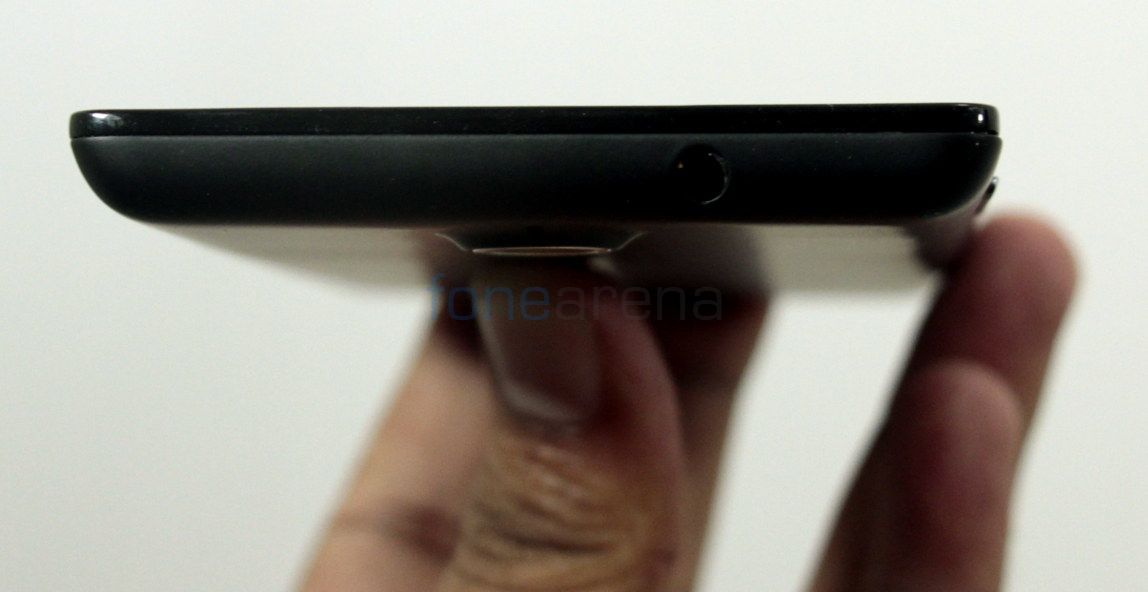
On the top there is a 3.5mm audio jack. You can see a small bulge, where the camera module is present.

On the bottom there is a micro USB slot.

The phone has a plastic back cover with matte finish. It is a bit slippery, since the cover extends to the sides of the phone. The weighs around 146 grams, normal for phones with 5-inch displays.
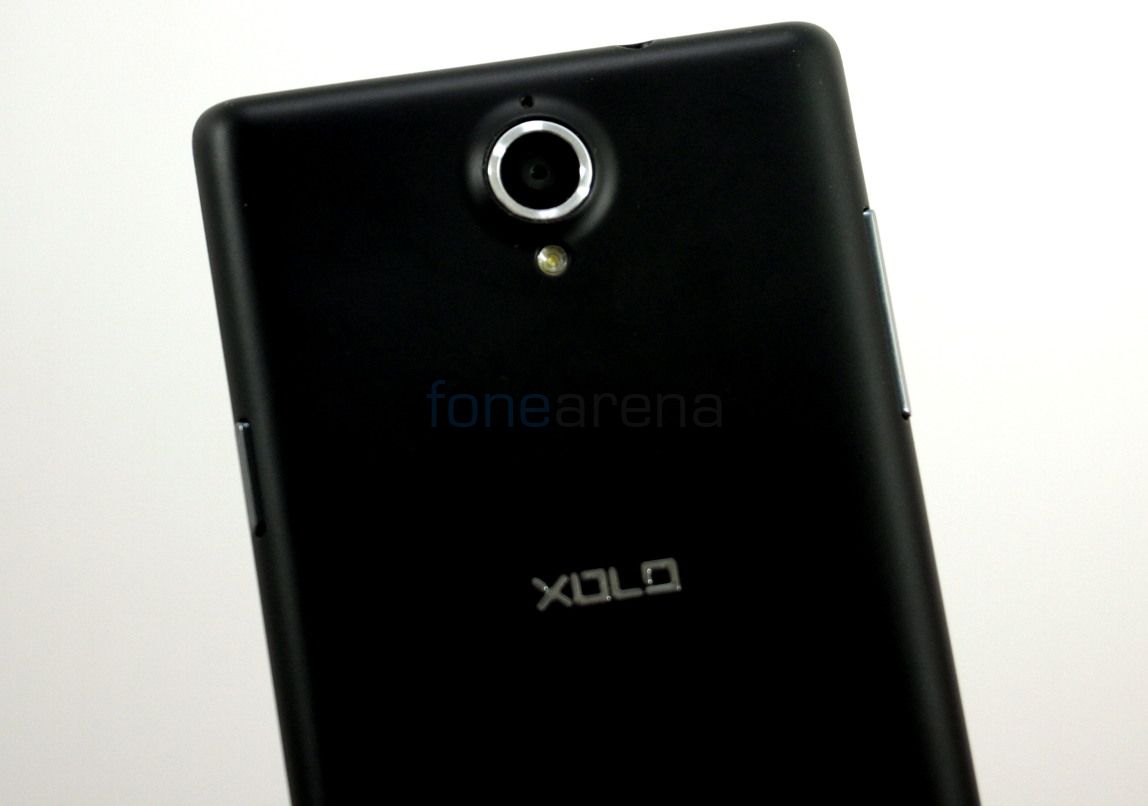
On the back there is 8-megapixel camera with Flash. It has Back Side Illumination (BSI) 2 sensor and a secondary microphone.
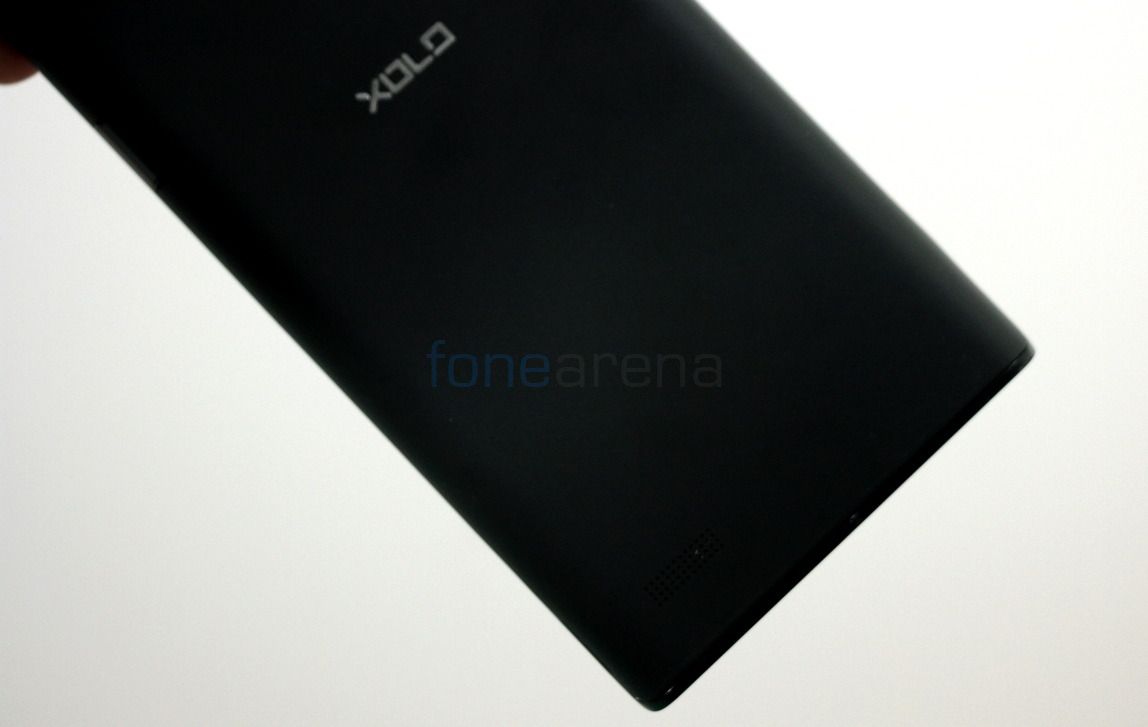
The loud-speaker grill is present on the bottom part of the back.
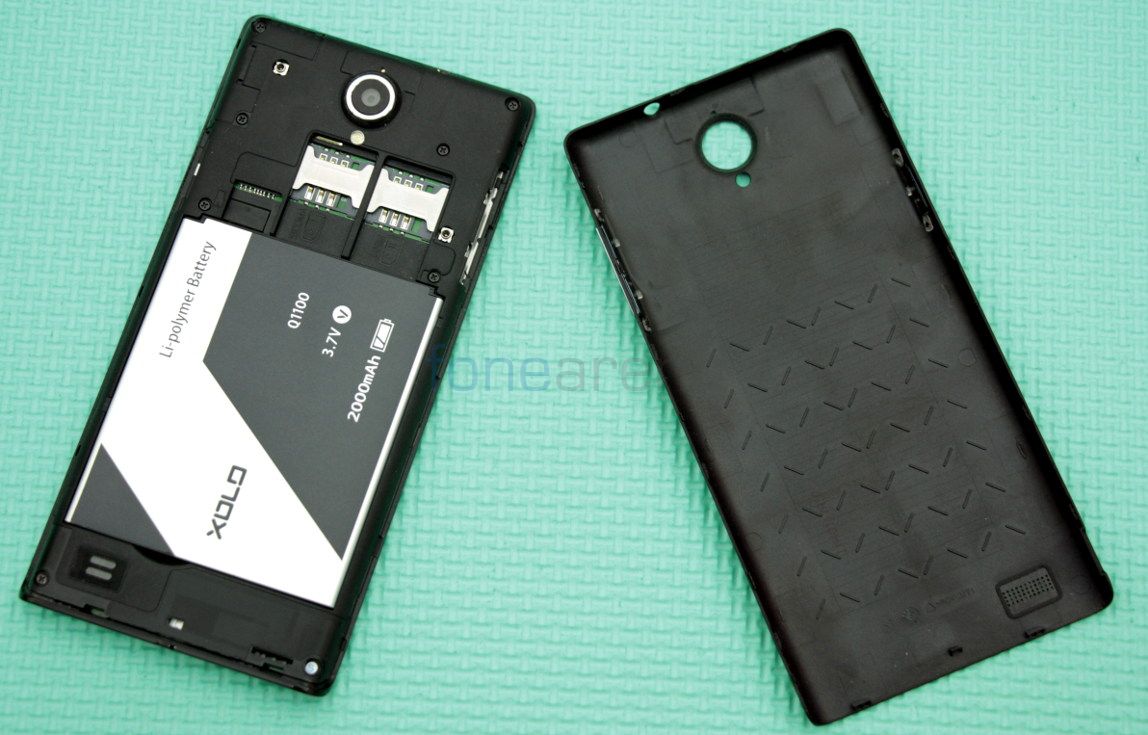
It is easy to remove the plastic back cover, but it a bit hard to replace it, since it needs to be locked perfectly. The phone has two SIM card slots, a micro SD card slot and a 2000 mAh removable battery.
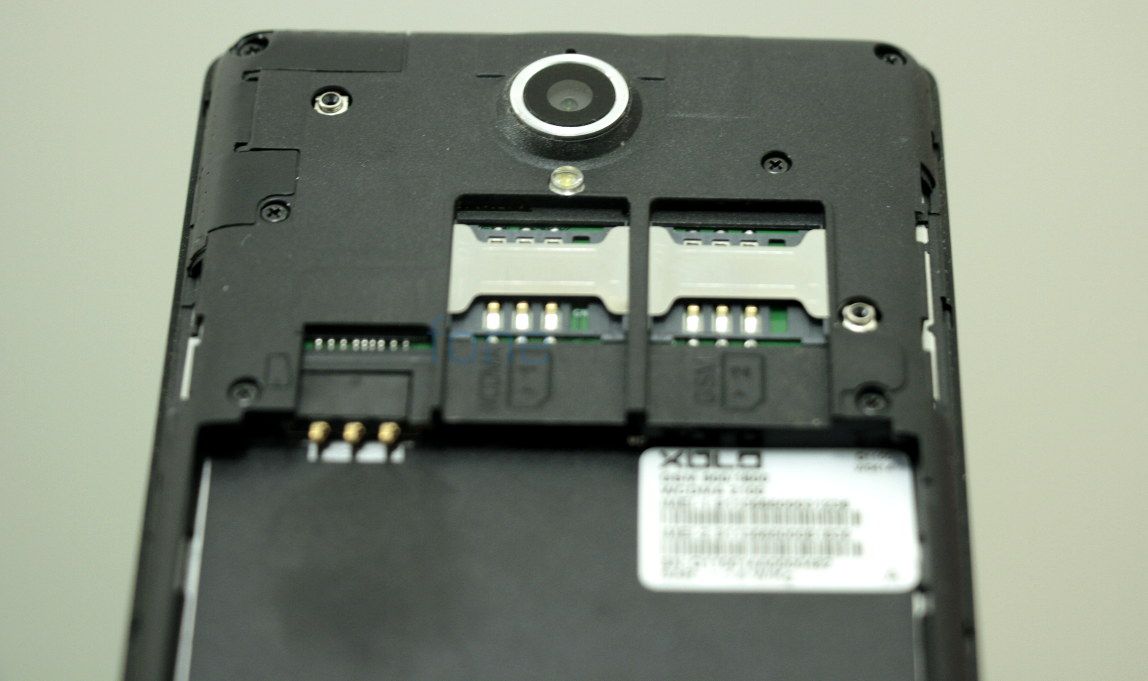
Both are normal or mini SIM card slots. The SIM 1 slot takes 3G SIM and the SIM 2 slot takes 2G SIM. The micro SD card slot accepts cards up to 32GB.

The phone also comes with a free flip cover. It has leather finish on the outside, that gives it a premium look.

The cover fits perfectly, but the flap protrudes out when it is closed, making it hard to access the power button.

There is a bulge on the side strip in the flip cover, to access the volume rocker easily.
Camera
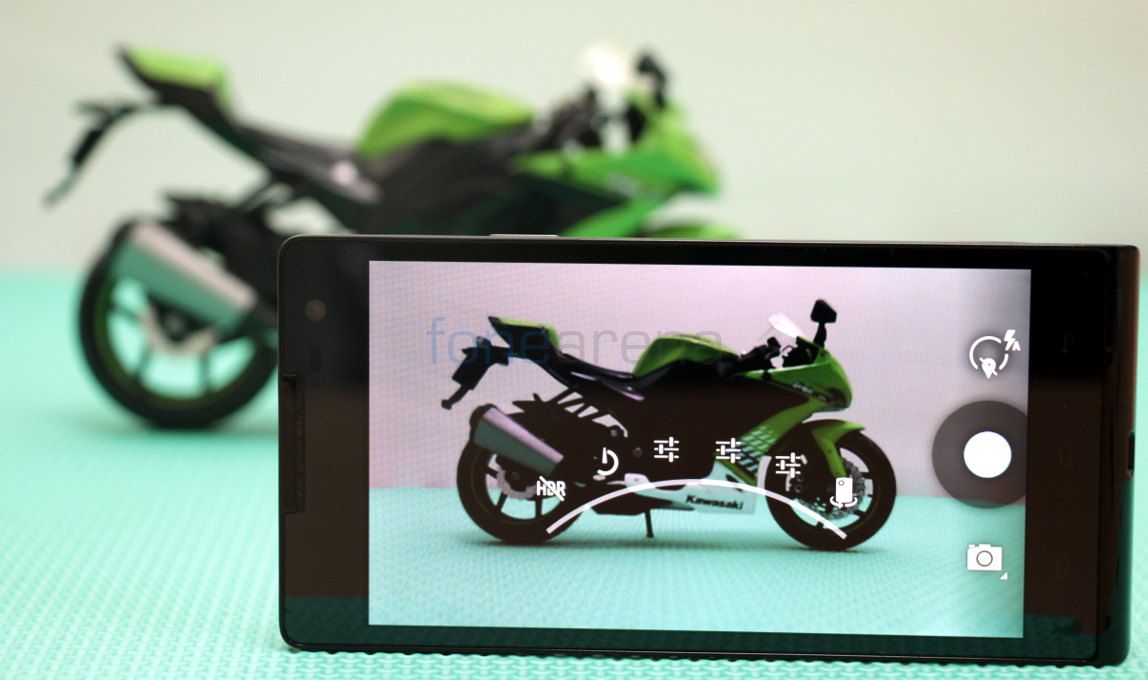
The Q1100 has a 8-megapixel rear camera with LED flash and a BSI 2 sensor. Since this has a Qualcomm Snapdragon processor, this has a different camera UI, unlike the MediaTek-powered Xolo smartphone. The camera UI is pretty much stock, but it offers a range of camera features. The options menu on the right side have HDR, three options for settings and a toggle to switch between front and rear cameras. On the right side there are options to switch between camera, video and panorama.
Camera options include, option to select Scene mode (Auto, Night, Sunset, ASD, Beach, Snow, Fireworks, Candlelight), Store location (GPS location), Histogram, Focus mode (Auto, Infinity, Macro, Normal, CAF), Picture quality (Super fine, Fine, Normal), Zero Shutter lag (ZSL), Color effects (Mono, Sepia, Negative, Solarize, Posterize, Aqua, Sketch) and more. You can also adjust saturation, contrast, sharpness, ISO, exposure, redeye reduction etc. Here are the screenshots of the camera options.
Xolo would introduce camera hawk feature, that would offer a visual representation of all these features, in a new UI. This would be available in an upcoming OTA update. Check out the screenshot from Xolo below.
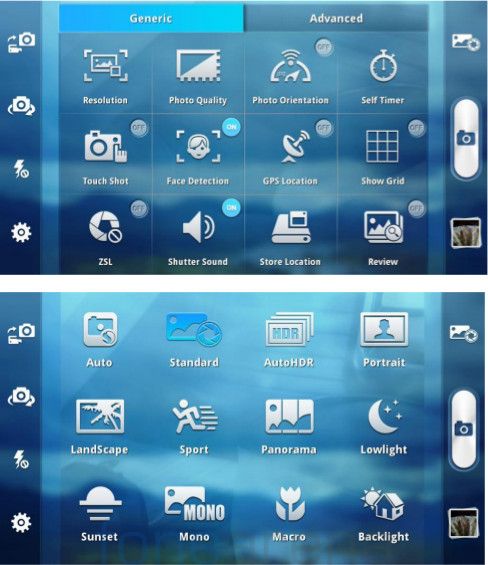
Images were average, and some images had a lot of noise, even in daylight, mainly due to post processing. It had auto focus issues in some macro shots, even in macro mode, but the macro shots looks good. Low light shots without flash obviously had a lot of noise. Since it doesn’t use focus assist light when you capture images in dark, it is hard to focus, otherwise images with flash were average. HDR images look over saturated.
Check out some camera samples below. All these images were taken in default settings. Macro shots were captured in macro mode. You can check out more camera samples here.
The phone can record videos at 1080p full HD video resolution. The default video encoder is H.264, but you can switch to MPEG4 or H.363.You can also switch between AMR-NB and AAC audio encoders. Video looks good and the audio is also pretty good, thanks to the secondary microphone. Check out the 1080p video sample (.MP4 with AAC audio) below.
httpv://www.youtube.com/watch?v=fn4IT3bcpvs
Software
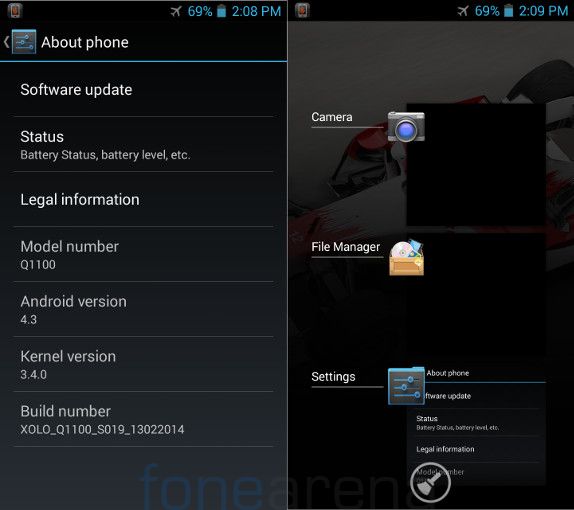
Coming to the software part, the phone runs on Android 4.3 (Jelly Bean), and this is the first Xolo smartphone to run on Android 4.3. You have all the features from the Android 4.2 such as Quick Settings, rich notifications, option to open the camera directly from the lock screen, lockscreen widgets, Daydream and more. Android 4.3 brings a lot of under the hood changes to improve the speed and has TRIM support for better memory management. It also has an option to clear background applications with one click. It supports up to 9 homescreens. As usual the UI is pretty much stock.
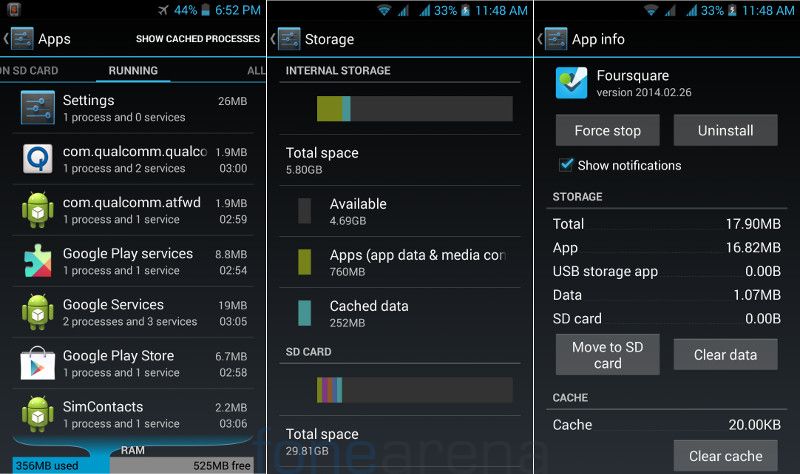
Out of 1GB of RAM, you get only 881 of usable RAM. About 525 MB of RAM is free when the phone is idle. Out of 8GB of internal storage you get 5.8 GB for user storage and apps. You can also move the apps in the phone memory to the SD card. Since it combines the memory together, you don’t have to worry about internal memory getting full, if you can’t move some apps to the SD card.
Apps

It comes with a range of pre-installed apps. It has the usual set of utility apps and Google Apps. You also have Xolo Secure and Xolo Power apps pre-installed. The X Transpic app lets you capture an image and translate the text from a native language to other language. This uses OCR and Google Translate. The output is not better than Google Translate. Reverie Phonebook app lets you use the phonebook in regional language, such as Hindi, Punjabi, Tamil, Telugu, Kannada, Malayalam and Gujarati. This app offers the complete UI and contact names in your local language.
Dialer and Messaging
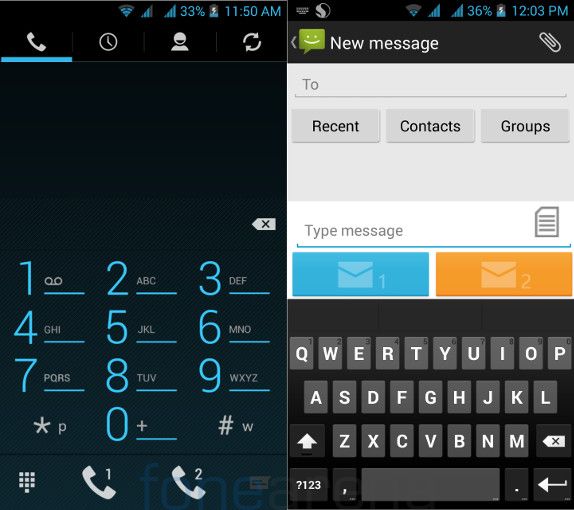
The dialer is a but different, with options to select SIM cards easily. Messaging option is also similar, but this has a new UI, that brings option to select recipient number from recent, contacts and groups. We did not face any call drops, and the earpiece volume is good.
Music Player and FM Radio
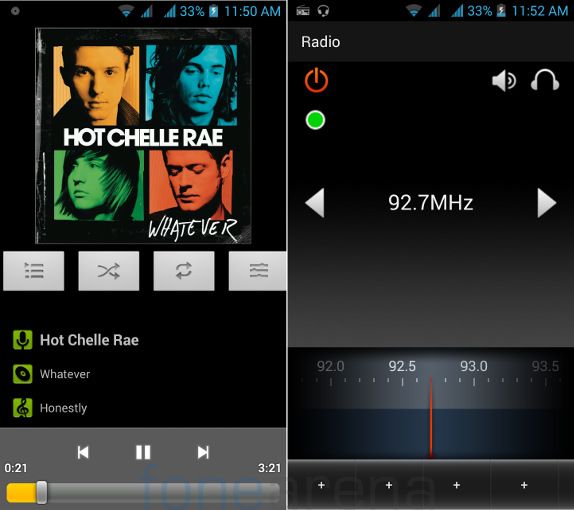
The Music Player is stock, and can play several audio formats, including MP3, MIDI, 3GPP, AMR-NB, WAV and, AAC. You can enable Snapdragon Audio+ to use equalizer, Bass boost and 3D effect features when you are listening using earphones. The phone has FM Radio with auto search and recording, but lacks RDS support. FM Radio has a bug, that doesn’t let you add your favorite stations to the bottom slider. Audio from loudspeaker is decent, but it could be better. Audio from the in-earphones is pretty good.
The default video player can play videos in a range of formats in full HD 1080p resolution smoothly. Since the display is glossy, it is a bit hard to view videos in daylight conditions. You also have to adjust the brightness manually, since the auto brightness make the video looks dull. Increasing the brightness manually drains the battery quickly.
Dual SIM and Connectivity
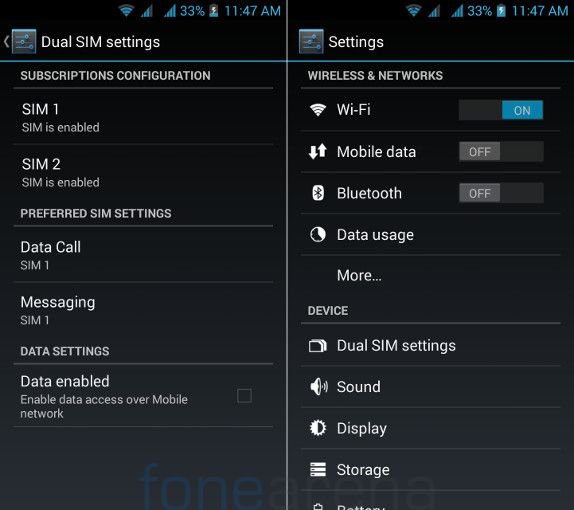
It has dual SIM support with standard SIM cards. You don’t have much customization options, and you cannot disable the SIM cards manually. The connectivity features include, 3G (HSDPA: 42.2 Mbps, HSUPA: 5.76 Mbps), Wi-Fi 802.11 b/g/n, Bluetooth v 3.0 LE and GPS. It has WiFi Direct, but lacks USB on-the-go (OTG) support. Since this runs on Android 4.3, you can enable a Wi-Fi option to detect location without turning on Wi-Fi all the time.
Performance and Benchmarks
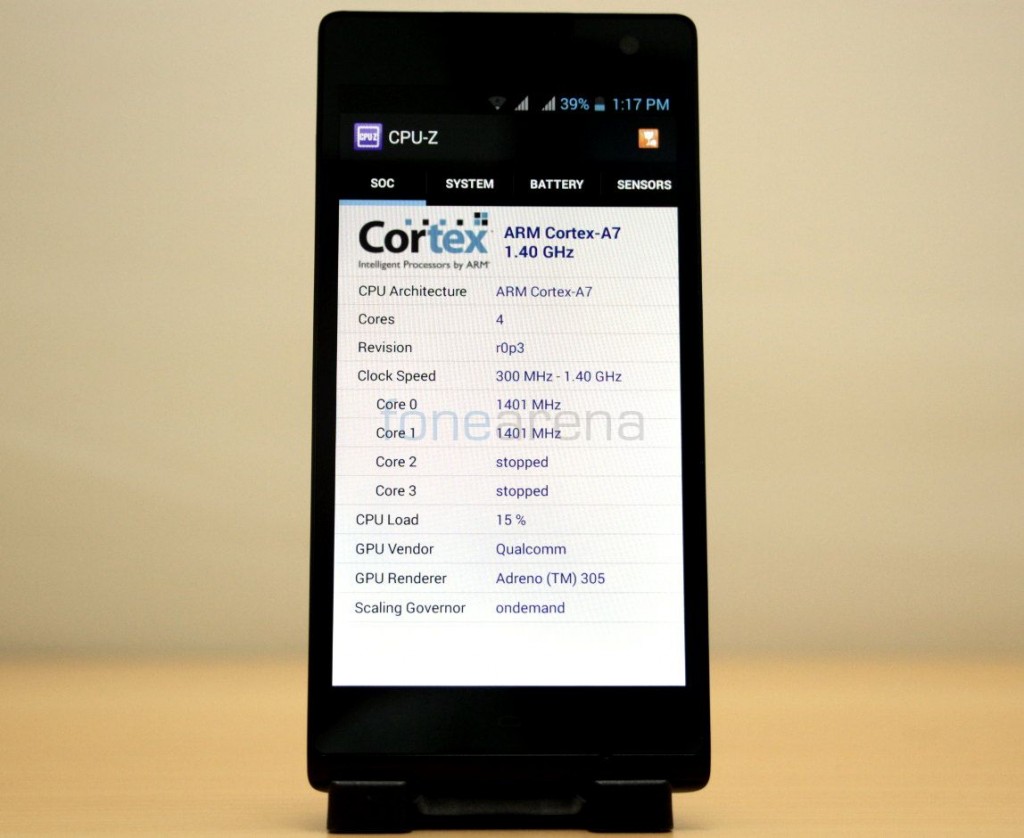
The Xolo Q1100 is powered by a quad-core Snapdragon 400 (MSM8228) ARM Cortex-A7 processor clocked at 1.4 GHz with Adreno 305 GPU. The phone doesn’t lag a bit, thanks to the faster processor and Android 4.3. 1 GB of RAM is enough to run quite a lot of apps in the background. Check out the synthetic benchmark charts below.
Quadrant Benchmark
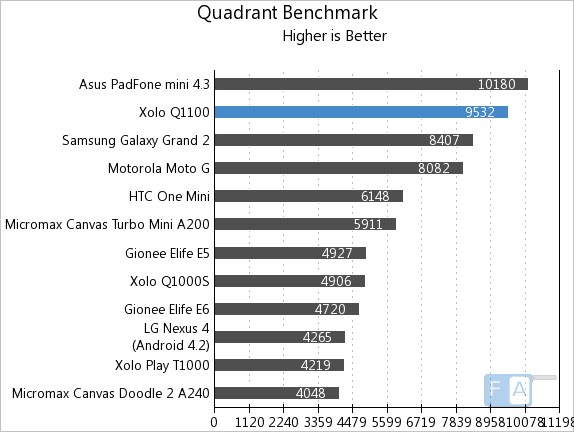
It scored 9532 points in the Quadrant benchmark.
AnTuTu Benchmark 4
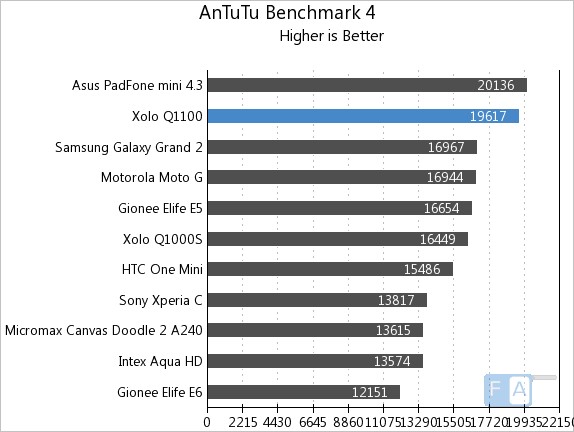
In the AnTuTu benchmark, the Xolo Q1100 scored 19617 points, just behind the Asus Padfone mini 4.3, that is also powered by a 1.4 GHz quad-core Snapdragon 400 chip.
Vellamo 2.0 HTML5
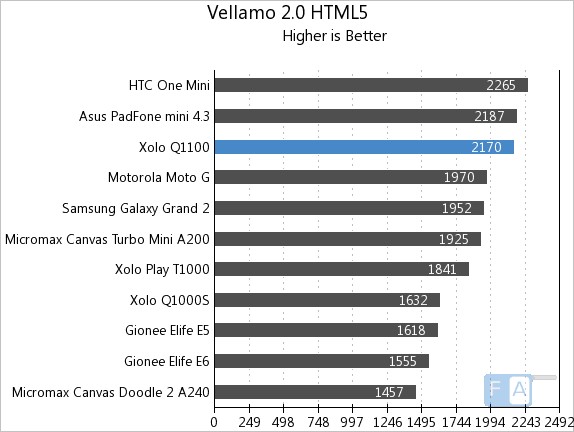
It managed to score 2170 points in the Vellamo 2 HTML browser benchmark.
Vellamo 2.0 Metal
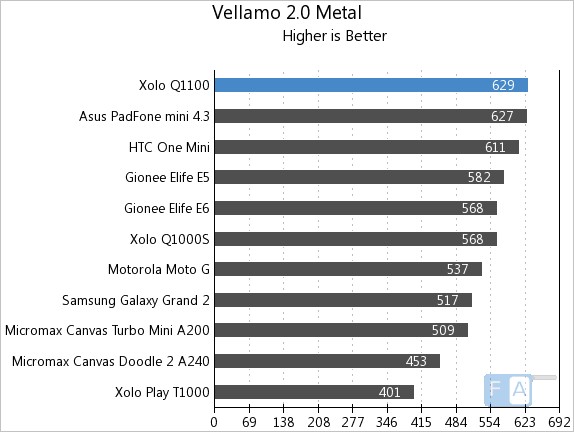
It scored 629 points in the Vellamo 2 Metal CPU Sub system performance test. You can check out the entire set of Xolo Q1100 benchmarks here.
We tired several games on the phone to test out the gaming performance. Graphics was good and gamplay performance was smooth. It doesn’t supports PlayStation 3 controller over USB OTG. Check out the gameplay videos of Asphalt 8 and GTA San Andreas below.
httpv://www.youtube.com/watch?v=IBi28azUwUA
httpv://www.youtube.com/watch?v=8OnlQ2gRkJw
Check out the gaming review, where we test games like Asphalt 8, GTA San Andreas, Subway Surfers, Dead Trigger 2, Riptide GP2 and Shadow Gun.
httpv://www.youtube.com/watch?v=ENb6lCV4wZc
Thanks to the OpenGL ES 3.0 support in the Android 4.3, the graphics performance was pretty good in games.
Battery Life
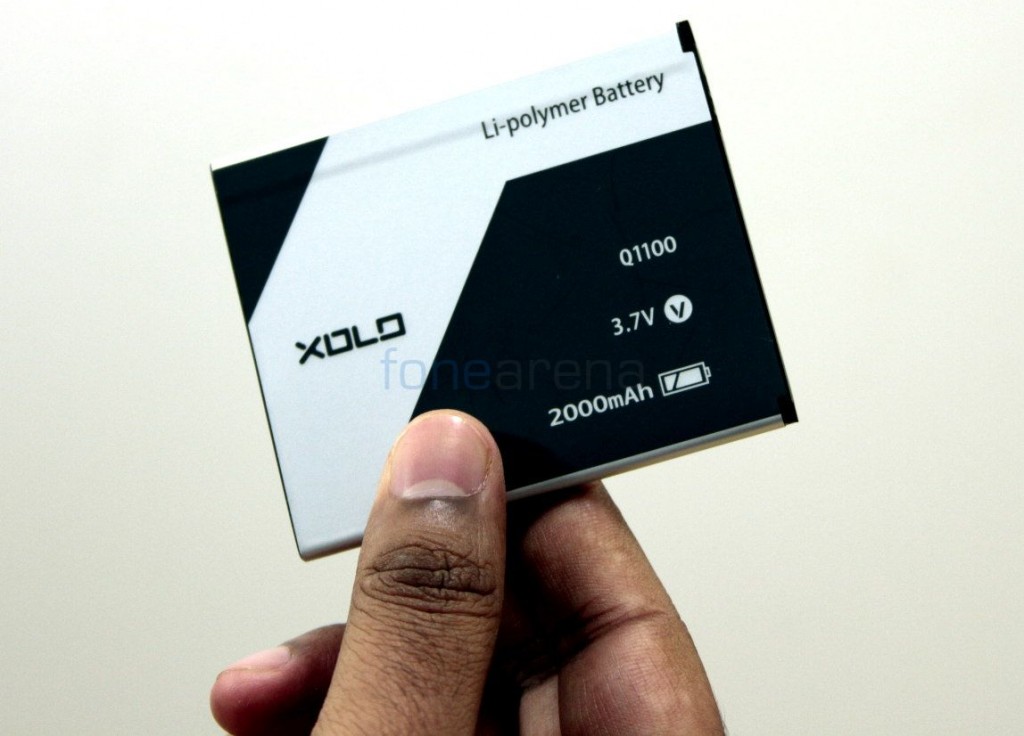
Coming to the battery life, the phone packs a 2000 mAh battery, less than Q1000s. It lasts for a a day with average use and less than a day with heavy use. Overall, the battery life is just average.
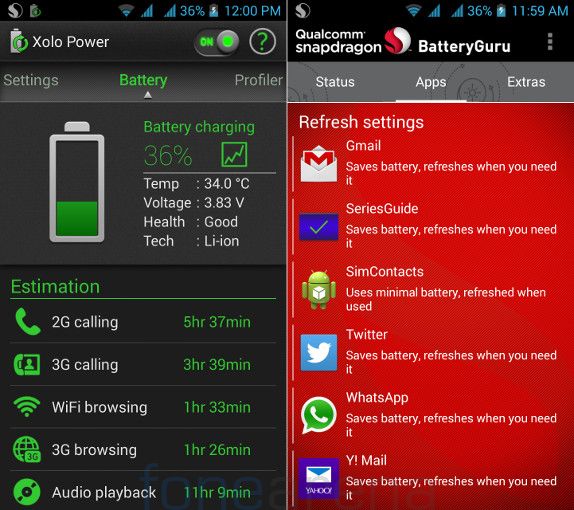
The bundled Xolo Power app lets you conserve the battery life when it is low, and the Qualcomm Snapdragon BatteryGuru app limits background refresh time, based on your preference, to improve the battery life. It also has Qualcomm’s QuickCharge 1.0, that promises up to 40 percent faster charging so that it can charge the battery in approximately 2 hours. The charging time is considerably better that some Xolo phones.
Conclusion
Overall, the Xolo Q1100 is a decent package from Xolo at a price tag of Rs. 14,999. It scores in build and performance, and also runs on Android 4.3 (Jelly Bean) OS, but camera is just average. It has a range of camera features compared to Moto G, but the image quality could be better. If you are looking for an Android smartphone with good build and performance in this price range, but can compromise on the camera and battery life, go for it.
Pros
- Good build
- Good performance
- 8 GB of internal storage with expansion slot
Cons
- Display is too glossy
- Battery life could be better
- Average camera

